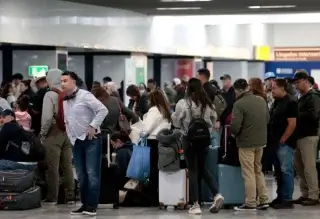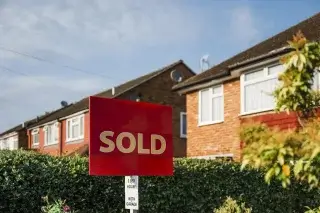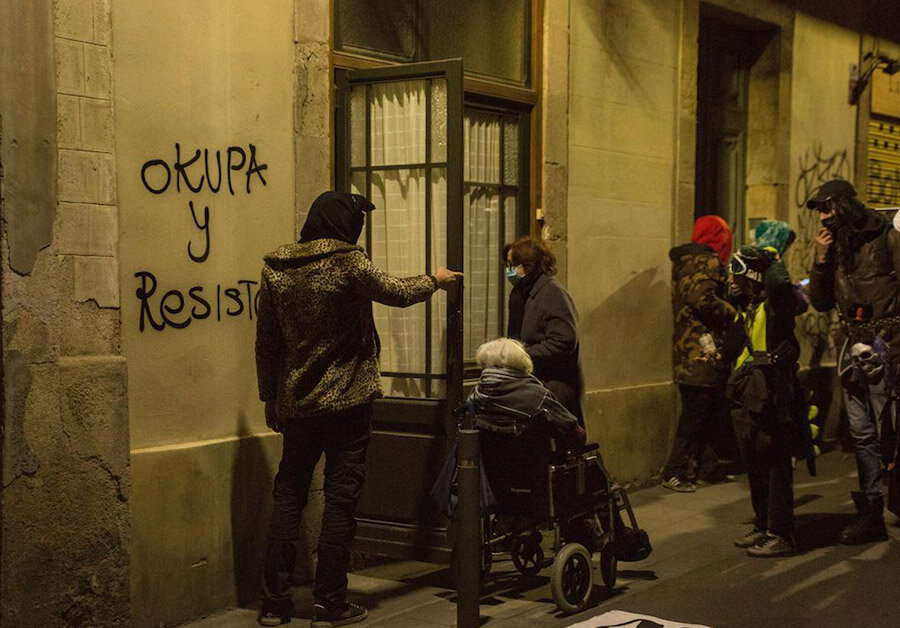read also
 Inflation in Romania Slows to 9.6% but Remains Above Forecast
Inflation in Romania Slows to 9.6% but Remains Above Forecast
 Riots in Mexico Disrupt Air Links to Resort Destinations
Riots in Mexico Disrupt Air Links to Resort Destinations
 UK House Prices Stabilise After 2025 Slowdown
UK House Prices Stabilise After 2025 Slowdown
 Israel Housing Market Eyes a Reset in 2026
Israel Housing Market Eyes a Reset in 2026
 Real Estate Investment Declines in Southeast Europe in 2025
Real Estate Investment Declines in Southeast Europe in 2025
 Asia Becomes the Engine of Global Aviation
Asia Becomes the Engine of Global Aviation
Rise in Squatting Cases in Spain in 2024: Statistics, Laws, and Expert Opinions

In 2024, Spain recorded a 7.4% increase in housing squatting cases (also known as "okupas") compared to 2023, bringing the issue back into public debate despite recent legal reforms. According to the Spanish Ministry of Interior, 16,426 cases were registered in 2024 — the third-highest number since 2010.
Squatting Hotspots and Trends
Squatting is most common in densely populated regions with many vacant homes and active rental markets. On average, 45 new cases are reported daily.
Catalonia remains the epicenter with: 7,009 complaints in 2024 (+12%).
Barcelona Province alone: 5,077 cases, nearly 31% of the national total.
Other affected regions include:
- Andalusia (2,207)
- Valencia (1,767)
- Madrid (1,451)
- Canary Islands (663)
- Castilla-La Mancha (538)
- Balearic Islands (514)
- Girona (940), Valencia city (876)
- Some provinces (e.g. Álava, Ceuta, Palencia, Zamora, Melilla) reported fewer than 20 cases.
Compared to 2010 (~3,000 cases), squatting in Spain has increased more than fivefold. In Catalonia alone, complaints have doubled since 2014. By the end of 2024, it's estimated that over 80,000 properties were occupied illegally.
Arrests and Legal Proceedings
11,133 individuals were detained or investigated for squatting in 2024 (+17.7%)
8,039 in Catalonia alone, including:
- 5,686 in Barcelona
- 1,131 in Girona
- 936 in Tarragona
The judiciary opened 1,782 court cases from January to September 2024, with 580 new trials in summer alone (+55% year-on-year).
The sharpest regional increases:
- Cantabria: +500%
- Catalonia: +173%
- Castilla y León: +130%
- Basque Country: +112%
Legal Reforms and Judicial Shifts
In November 2024, Spain’s Congress approved fast-track reforms to Article 795 of the Criminal Procedure Code, allowing:
- Court summons within 72 hours
- Hearings within 15 days
- Verdicts in 3 days
While this law aims to simplify evictions, experts warn it’s less effective for vulnerable groups, who are protected under broader social laws.
Housing expert José Ramón Zurdo called for a national rental registry to verify legal tenants quickly. Jesús Manuel Martínez Caja, head of AMADEI, stressed that cases involving non-paying tenants (so-called "inquiokupas") still fall under civil fraud and may last years in court.
Case Law Evolution
Despite legislative delays, some courts are starting to rule in favor of property owners:
- In Barcelona, judges upheld the legality of cutting off utilities in squatted homes
- Courts ruled that cases cannot be closed without identifying residents
- In Girona, several cases allowed eviction within 24 hours
However, lawyers caution that evictions still take 2–3 years in many cases.
Investment Impact & Owner Response
Squatting continues to undermine Spain’s real estate market, especially in Catalonia. Despite legal progress, slow procedures and limited enforcement force many property owners to turn to private solutions: settlements, negotiations, and specialized eviction companies.
The current situation hurts investor confidence, particularly for foreign buyers, and calls into question Spain’s ability to protect property rights efficiently.
Подсказки: Spain, squatting, okupas, housing, Catalonia, Barcelona, eviction, real estate, investment, law, property, 2024, courts, judiciary, immigration, legislation


